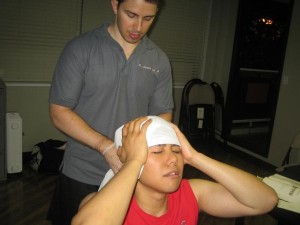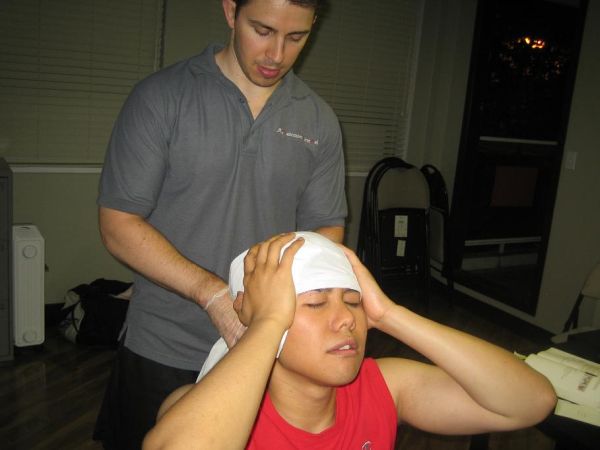It is estimated that around 50,000 people suffer from traumatic brain injuries (TBI) in

Canada every year. There were 18,000 hospitalizations and more than 11,000 deaths due to TBI. It is the leading cause of disability and death, and is more common than other dreaded health conditions such as HIV/AIDS, breast cancer, multiple sclerosis, and spinal cord injury combined. TBI is also the leading disabler and killer of people below 40 years of age. Falls and motor vehicle accidents are the leading causes of TBI as well as assaults or injury inflicted by others, and sports- and recreation-related injuries. TBI is more common in males than in females.
Most people think that an individual has to be knocked unconscious to sustain a brain injury. The truth is that bran damage can occur even in mild traumatic brain injury (MTBI) or concussion. The cells, blood vessels and tissues of the brain are very sensitive and can get easily damaged with trauma. However, it does not mean that all head injuries can lead to TBI. The risk of brain injury and damage is ever present in cases of emergencies involving the head and the back. Proper first aid for head and neck trauma is critical in preventing further injuries or damage to the brain. This can be done if you have a formal standard first aid training.
Traumatic brain injuries can result in severe complications that include being bedridden for weeks or days. There are approximately 1.9 million people who are living with neurological disorders as a result of TBI. Some of these complications develop right after the injury. Long-term disabilities may also develop gradually.
Some of the complications that can occur days or weeks after the injury include:
- Increased intracranial pressure (ICP)
- Edema or swelling of the brain
- Hydrocephalus – when the cerebrospinal fluid (CSF) is unable to drain and collects in the pockets of the brain.
- Low blood pressure
- Fever, especially when the thermoregulatory centers of the brain has been affected or due to infection
- Pneumonia due to the loss of movement and being bedridden
- Brain infection
- Blood clots due to slow blood flow
- Pulmonary embolus – when a blood clot lodges into a blood vessel of the lungs
- Skin breakdown due to being bedridden
The individual may also suffer from disabilities due to traumatic brain injuries. Some possible disabilities include:
- Problems with sensory processing (sight, touch, hearing, smell and taste)
- Trouble communicating with others and the environment (understanding and expressing)
- Problems with thinking, reasoning and memory
- Changes in behavior or mental health (anxiety, aggression, acting out, depression, personality changes, and social inappropriateness)
- Paralysis of certain parts of the body
TBI can also result in long-term disabilities such as:
- Alzheimer’s disease
- Parkinson’s disease
- Dementia (post-traumatic dementia or dementia pugilistica)
While prevention of TBI remains the best defense against these complications, knowledge of first aid and emergency care can greatly help prevent possible secondary brain injuries. Taking a first aid certification program is recommended to help minimize disabilities and complications due to brain injury. Be careful and start learning emergency first aid now.

